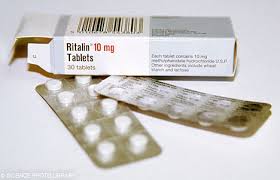When Cocaine Withdrawal Becomes Dangerous: Cocaine Addiction Treatment Considerations
As one of the strongest stimulant drugs on the market, cocaine wreaks havoc on the body’s systems while at the same time creating a state of physical and psychological dependence. These combined effects leave users to contend with severe withdrawal symptoms that grow progressively worse with time.
According to the National Institute on Drug Abuse, an estimated 16.6 percent of adults aged 26 years and older have engaged in some form of cocaine abuse during their lifetimes. When drug abuse practices continue, it becomes that much harder to overcome the effects of abuse and addiction in your life.
As cocaine withdrawal becomes more severe, symptoms also become more dangerous in terms of the damage done to the brain and the body. For these reasons, it’s important to take stock of where you’re at in the drug abuse cycle to determine whether some form of cocaine addiction treatment is needed.
For information on cocaine addiction treatment options, please feel free to call our toll-free helpline at 800-605-6597 Who Answers?.
Below we discuss some of the most dangerous symptoms of cocaine withdrawal.
Paranoia & Aggression
According to the National Center for Biotechnology Information, an estimated 68 to 84 percent of cocaine abusers experience episodes of paranoia. Thinking someone is threatening or “plotting against” you can incite feelings of hostility and aggression that aren’t warranted. Add to this the overall loss of impulse control cocaine causes and someone struggling with paranoia will have a difficult time controlling his or her behavior.
Considering how cocaine withdrawal symptoms only grow more severe with time, feelings of paranoia can start to pose a real danger to addict as well as to those around him or her. With cocaine addiction treatment, you receive the level of care and monitoring needed to ensure your safety and ease distressing withdrawal effects.
Depression Risks

Cocaine withdrawal can cause severe depression.
Cocaine withdrawal brings on symptoms that are the exact opposite of the increased energy, confidence and feelings of elation that come with a cocaine “high.” This means, frequent or long-term drug users experience severe depression symptoms when reducing drug use or trying to stop altogether.
In some cases, depression severity can easily drive a person to consider suicide and even act on these thoughts. According to the Primary Care Companion, drastic drops in dopamine neurotransmitter levels account for the degree of depression experienced.
For these reasons, it’s especially important for “hardcore” cocaine users to seek professional treatment help rather than trying to stop drug use on their own.
Psychosis
Over time, cocaine’s effects essentially eat away at brain cells, creating a highly unstable chemical environment in the brain in the process. With heavy cocaine abuse, such as frequent bingeing, it doesn’t take very long at all before symptoms of mental illness, and even psychosis start to develop.
At this point, cocaine withdrawal episodes bring on highly volatile and unpredictable behaviors, including:
- Confusion
- Delirium
- Hostility
- Tactile hallucinations, such as feeling bugs burrowing underneath the skin
- Restlessness
- Irritability
Under these conditions, delaying treatment only places you at further risk of developing long-term mental health problems.
Treatment Considerations
If you or someone you know struggles with chronic cocaine abuse, severe cocaine withdrawal episodes can pose a real danger to you as well as to your friends and loved ones. In effect, withdrawal severity only gets worse with time, so there’s a very real need for some form of cocaine addiction treatment.
If you need help finding a program but don’t know where to look, please don’t hesitate to call our helpline at 800-605-6597 Who Answers? to ask about available treatment options.



